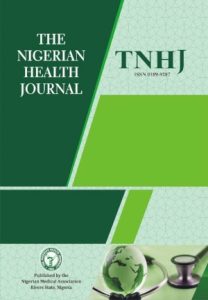IN A NUTSHELL Authors' NoteIntegrating artificial intelligence (AI) into healthcare has transformed disease diagnostics, offering opportunities to enhance accuracy, efficiency, and accessibility. However, adopting AI-assisted diagnostics depends significantly on future public health professionals' knowledge, attitudes, and practices (KAP). This study assessed the KAP of students of Master of Public Health (MPH) at Ahmadu Bello University (ABU), Nigeria, regarding AI-assisted diagnostics in healthcare, including the gaps in the current MPH curriculum concerning AI literacy
PEAH is pleased to share an original article first published in The Nigerian Health Journal, 25(3), 1268 – 1275 
Knowledge, Attitudes, and Practices of AI-Assisted Diagnostics Among Students of Master of Public Health in Ahmadu Bello University, Zaria, Nigeria
Quotation
Samuel, D., Jonah, J., Samuel, G., Amos, I., Eche, R. ., Makinta, A., & Musa, H. (2025). Knowledge, Attitudes, and Practices of AI-Assisted Diagnostics Among Students of Master of Public Health in Ahmadu Bello University, Zaria, Nigeria. The Nigerian Health Journal, 25(3), 1268 – 1275. https://doi.org/10.71637/tnhj.v25i3.1187
PDF HERE
Abstract
Background: Integrating artificial intelligence (AI) into healthcare has transformed disease diagnostics, offering opportunities to enhance accuracy, efficiency, and accessibility. However, adopting AI-assisted diagnostics depends significantly on future public health professionals’ knowledge, attitudes, and practices (KAP). This study assessed the KAP of students of Master of Public Health (MPH) at Ahmadu Bello University (ABU), Nigeria, regarding AI-assisted diagnostics in healthcare, including the gaps in the current MPH curriculum concerning AI literacy.
Methods: The study adopted a quantitative cross-sectional descriptive survey design. Data from 205 ABU MPH students recruited via simple random sampling were collected using researcher-constructed 16-item questionnaires, organized into four sections, and sent via email on Google Form. KAP were measured on 3-point Likert scale. The collected data were analyzed in descriptive statistics using SPSS version 28.
Results: The response rate was 99%. The findings revealed moderate levels of knowledge about AI tools (73.3%), positive attitudes toward their use (73.8%), but limited practical experience and dissatisfaction (29.5%) with the current level of AI training in the MPH curriculum. Students supported incorporating AI-related courses and experiential learning opportunities into MPH program (72.5%).
Conclusion: These results highlight the need for targeted interventions to enhance AI literacy among MPH students and prepare them for the ethical and practical integration of AI technologies in healthcare. The study contributes to the discourse on modernizing public health education and provides actionable recommendations for policymakers, educators, and healthcare institutions. Future research should explore longitudinal trends and cross-cultural perspectives to inform AI adoption strategies in public health practice.